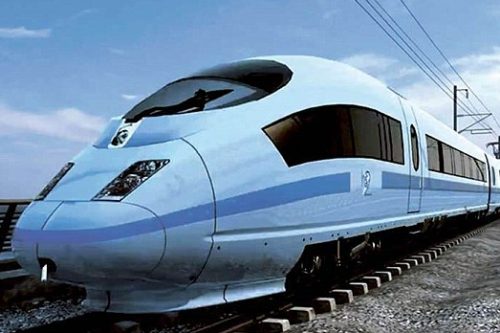HS2 could create huge job boost across Yorkshire

A strategy for delivering “the step change in connectivity required to enable the transformative impact of HS2 to be realised across the City Region” has been launched today.
Leeds City Region’s HS2 Growth Strategy outlines how the region can maximise on the arrival of HS2, through improved links within and beyond the City Region.
It says that delivery of the LCR HS2 Connectivity Strategy will bring new and more productive jobs within reach of people, new markets within reach of businesses, new talent within reach of employers, and new knowledge and investment in reach of innovators and entrepreneurs.
The strategy document states: “An accelerated programme of transformational connectivity is a prerequisite to enabling the economic geography of the City Region to be reshaped through HS2.
“Transformational connectivity will play key a role in tackling low levels of productivity and stubborn levels of deprivation which have both been identified as key challenges to be addressed through the Leeds City Region’s inclusive industrial strategy, reflecting the fact that the pattern of deprivation has changed little in decades.”
HS2 will represent one of the biggest construction projects taking place in the LCR over the next generation. The HS2 project construction phase is expected to generate between 15,880 and 27,780 workplace construction related jobs between 2026 and 2033 in the Leeds City Region.
Jobs associated within the wider local economy could see a combined growth rate of 12%, three times the average rate for all occupations. In the decade to 2024 the number of high skilled jobs in the City Region is expected to increase by approximately 71,000.
The strategy sets out that to cater for an additional 146,000 Full-Time Equivalent (FTE) jobs forecast across the City Region, including the 24,500 additional FTEs in Leeds city centre, the region needs to plan for at least an additional 25,000-30,000 trips into Leeds city centre in every morning peak by 2033. This equates to at least a 25% increase in trips on top of current levels into the city centre.
The document states: “Taken together, the current committed and planned investments in bus, rail, walking and cycling do not provide the required capacity or sufficiently address the deprivation or productivity challenges facing the City Region.
“The City of Leeds and the City Region therefore face a major ‘investment gap’. Identifying solutions to this Investment challenge which also address the Industrial Strategy productivity priorities is a core focus for this strategy.”
Among schemes which could be accelerated is the transformation of Leeds Station and the regeneration of sites in Bradford, Halifax, Huddersfield, Wakefield and York. The strategy sets out plans to make the region an international centre of excellence in light and high speed rail skills, and highlights University of Leeds proposals to create a high speed rail engineering base and technology park.
HS2 is also expected to make the Leeds City Region, including Craven, Harrogate, York, Selby and Barnsley, an attractive location for inward investment and generate a significant increase in tourism.
The strategy, which is open for public consultation until March 2, said that Leeds City Region HS2 Growth Strategy vision is for: “HS2 to be the catalyst for accelerating and elevating the Leeds City Region’s position as an internationally recognised place of vitality, connecting the North and creating an inclusive, dynamic economy, accessible to all.”








